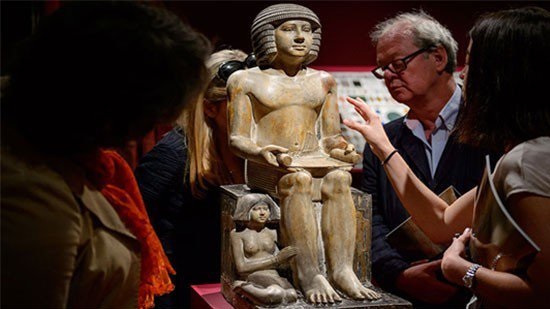The ancient Egyptian Sekhemka statue, which was sold in the U.K.’s Christie’s auction house in July, has reportedly ended up at the U.S., according to a document released by the UK Department for Culture, Media and Sport (DCMS) documentation.
According to the document, an application was made to export the 4,200-year-old masterpiece to the United States.
In July 2014 the Northampton Borough Council (NBC) sold the statue of the Egyptian royal scribe Sekhemka, by auction at Christie’s in London to help fund an extension to the town’s museum. The statue was sold to an anonymous buyer for £15.76 million ($20 million.)
The motion infuriated a wide range of people inside and outside Northampton and caused outrage among historians and Egyptologists. It also raised a number of ethical and legal questions arising from the sale of the statue.
In October, 2015, British Culture Minister Ed Vaizey has decided to initiate a second deferral period on the export license application of the statue till March 29, 2016.
Unfortunately, at the end of the initial deferral period in March 29, 2016, no offer to purchase the painting had been made, therefore an export license was issued by the DCMS.
The painted limestone statue, measuring 30 inches high and 12.5 inches wide, belonged to an ancient Egyptian court official and scribe during the fifth dynasty (2400 B.C–2300 B.C.) It was excavated from the Sakkara archaeological site, 26 kilometers south of the Giza Pyramids.
“The statue was originally acquired by Spencer Compton, the second Marquis of Northampton during his trip to Egypt in 1849 to 1850,” former head of the Supreme Council of Antiquities Abdel Halim Nour el-Din was quoted by Al-Ahram.
It was given to the Northampton Museum either by the third or fourth Marquis of Northampton prior to 1880, Nour el-Din added.




